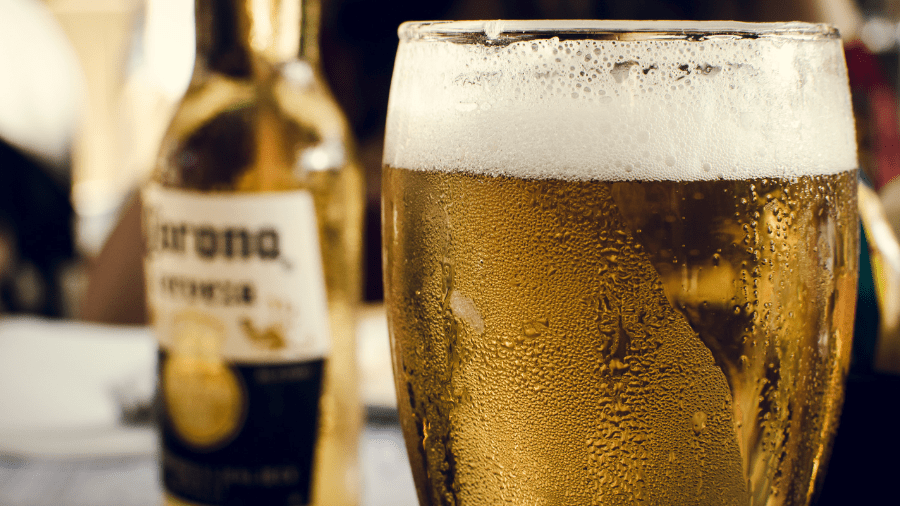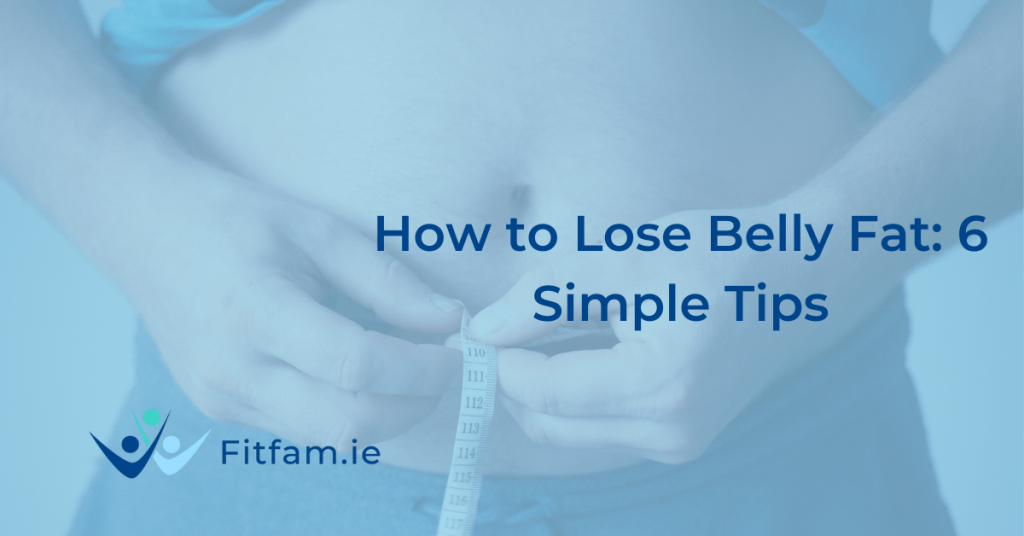How to lose belly fat? Well, this is a question asked time and time again. Having lots of belly fat runs the risk of contracting diseases such as heart disease and diabetes. Wanting to lose belly fat isn’t just about wanting to look good in your clothes it is more importantly looking after your health. Losing belly fat is important and has huge health benefits for you leading you to a longer and healthier life.
Losing fat can be difficult but there are several steps you can take to reduce excess abdominal fat.
1. Avoid Foods Containing Trans Fats
Trans fats are known as one of the worst fats that you can eat. Unlike other fats, trans fats also called trans-fatty acids raised your cholesterol. If your diet includes a lot of trans fats it will increase the risk of you developing heart disease. If you eat a lot of trans fats then you are only increasing the risk of heart and blood vessel disease.
What is Trans Fats?
Trans Fats are formed through an industrial process that adds hydrogen to vegetable oil. This cause the oil to become a solid at room temperature. It is less likely to spill so these foods have a longer shelf life. Some restaurants tend to use this oil in their deep fryers so they don’t have to change them as often as other oils.
Manufactured forms of trans fats are found in a variety of popular food products. You may not have known about this before but more than likely you are eating them on a daily basis. They include:
- Microwave Popcorn
- Frozen Pizza
- Fried foods such as chips and fried chicken.
- Stick Margarine.
- Bakes goods such as cakes and cookies.
The following video does a great job explaining what trans fats are.
How Do Trans Fats Harm You?
The worry around trans fats is that they increase the risk of getting a heart attack type 2 diabetes and even a stroke. They have a very unhealthy effect on your cholesterol levels. Eating trans fats increases LDL (Low-density lipoprotein) which can build up the walls in your arteries making them harder and narrow. If these fatty deposits grow they can tear or rupture your arteries. A blood clot may form and flow to your heart which leads to a heart attack or a stroke.
Experts recommend keeping your trans fat intake as low as possible. Although foods free of trans fat does not simply make them good for you. For example, they may use coconut oil or palm oil which is full of saturated fats. Monosaturated fats are much better for you and are found in olive and peanut oils.
2. Don’t Drink Too Much Alcohol
We all love the occasional drink or night out. Alcohol is very much a part of peoples social life. If you’re meeting up with friends you will more than likely catch up over a drink in your local bar. Research suggests that drinking too much alcohol can make you gain belly fat. Heavy alcohol consumption increases the risk of developing what is called central obesity. Central obesity is excess fat storage around your waist.

That is not to say you have to cut out alcohol completely. The occasional drink is not going to harm you too much. But cutting back on alcohol may help reduce your waist size.
From a calories perspective, alcohol is bad for belly fat loss. Alcohol has a lot of empty calories, meaning they don’t have any nutritional value associated with them. You could be drinking hundreds of extra calories a day without even thinking about it. If you are mixing your alcohol with carbonated drinks like Coca Cola or Fanta you are adding even more calories which are also high in sugar and carbs. You could be eating a healthy diet but because of your alcohol consumption, you may not be seeing any results.
Alcohol consumption also leads to the intake of more fatty foods. When you’re drinking you lower your inhibitions which leads to you eating an extra burger or a couple of slices of pizza that you wouldn’t usually eat. You pay less attention to your dies and just eat. This is another reason why alcohol has a negative impact on losing belly fat.
3. Eat More Protein
Protein is essential for weight management. When we see that we need to intake more protein we immediately assume we need to start drinking protein shakes and doing weights. This is not the case although it is hugely beneficial it is not for everyone. High protein intake increases the release of the fullness hormone PPY. This hormone decreases your appetite and promotes fullness. Before you may have been consuming a low protein diet but always felt hungry. With an increased protein intake you will feel fuller but overall will be eating fewer calories.
Protein also raises your metabolic rate which helps you to retain muscle mass during weight loss. People who eat more protein tend to have less belly fat than those who are on a lower protein diet. You should always have a protein source in every meal you eat. It may sound simple because it is! A good protein source includes:
- Meat
- Fish
- Whey Protein
- Eggs
- Dairy
- Beans
Eating high protein foods such as fish are key if you’re looking to lose belly fat. They will leave you with a smaller wist so you can slide back into those jeans you bought five years ago.
The Diet Doctor explain how protein is key for losing fat mass and promotes metabolic health and keeps you full keeping you from being hungry.
4. Reduce Your Intake of Sugary Foods
Sugar contains fructose which has been linked to a number of chronic diseases when consumed in an excess amount. These include diseases such as heart diseases, type 2 diabetes, fatty liver disease and obesity. There is a strong relationship between a high sugar intake and an increase in belly fat.
Sugar will not prevent weight loss. Sugar is glucose and glucose is actually a preferred energy source for our body. It also comes primarily from carbohydrates. Glucose is essential for our organs to work properly. It helps give us energy and it also helps with burning belly fat. Trouble sets in when you eat more sugar than your body can use at once. It is then when weight or fat loss becomes very difficult.
There are certain sugars to watch out for when you want to lose belly fat. Added sugars have little nutritional value to you such as cake, fizzy drinks and pastries. We eat them mainly cause we like them not because of any nutritional value they give us. They are typically low in fibre too, a nutrient that helps with weight loss.
What Are Healthy Sources of Sugar?
There are lots of natural sugars found in foods like milk, cheese and unsweetened yoghurt which is lactose and fruit which is fructose. These are not considered added sugars. Both lactose and fructose are types of sugar that break down into glucose. They are also full of nutrients that fight diseases and should not be avoided for losing belly fat. Foods that contain sugar naturally are also low in calories, fat and sodium which is great.
On the other hand, we have refined sugars which once you have eaten they rapidly enter the bloodstream and cause your insulin and blood sugar levels to rise to unhealthy levels.
If you’re looking to reduce your sugar intake here’s a great video on some sugar substitutes.
What Foods Should I Avoid?
Your primary focus should be on limiting foods with either added sugars or refined sugars. These foods include:
- Fizzy Drinks
- Cakes
- Cookies
- Jellies
- Syrups
You should also reduce or completely eliminate sweetened drinks from your diet. Sugar-sweetened drinks like fizzy drinks, alcohol and sports drinks like Lucozade sport are the primary sources of added sugar.
5. Reduce Your Stress Levels
Of course, we’d all love to be free of stress but at times feels impossible. There are stresses every day be it your job, relationship or family. Stress can lead to an increase in belly fat by triggering adrenal glands to produce cortisol. Cortisol is also known as the stress hormone. High cortisol levels are associated with an increased appetite and an increase in belly fat.
To make things even worse larger women tend to produce more cortisol in their response to stress. To lose belly fat you should engage in activities you enjoy that relieve your stress. Yoga or meditation are popular activities to relieve stress. Find a local yoga class here.
Why Do People Stress Eat?
When stressed some people may tend to eat. Stress eating is a type of emotional eating and typically leads to weight gain. When people stress eat they tend to crave food that is high in sugar and fat. A researcher from the University of California, Elissa Epel explains, “We crave sweet, salty, and high-fat foods [when stressed] because they stimulate the brain to release pleasure chemicals that reduce tension.” The sotthign effect of stress eating can be addictive as it feels like it alleviates the stress. It usually does but this is only a short term effect. It ultimately makes us feel worse and the cycle continues.

Stress and Sleep
Have you ever gone to bed stressed and felt like time was passing by so slowly and that you couldn’t fall asleep? Well, stress plays an important role in our sleep quality. Less sleep and chronic fatigue cause the ghrelin hormone to rise. Ghrelin is the primary hunger hormone and causes an individual to feel hungry even when they don’t need to eat. It can also be released when we drink alcohol. If you are struggling to fall asleep you could use Headspace to relieve stress before you hit the pillow.
The video below is an insightful video into the science of stress, calm and sleep with Andrew Huberman. Andrew Huberman is a neuroscientist and associate professor of neurobiology and ophthalmology at the Stanford University School of Medicine. He explains his ongoing research in his lab and includes practical tips on how to manage stress and sleep better.
6. Try Cutting Down on Carbs
Reducing your carb intake can be huge befit when you want to lose belly fat. There isn’t a need to follow a strict low carb diet but replacing some refined carbs with unprocessed starchy carbs may help lose belly fat and improve your metabolic health.
Reducing carbs tends to reduce your appetite and cause weight loss without the need to count your calories. A low carb diet can leave people feeling satisfied and still losing weight.
The Dietary Guidelines for Americans recommends that carbs provide 45–65% of your daily calorie intake for all age groups and sexes. Studies have found that reducing their carb intake can be an effective part of a weight-loss strategy.
Here is a great video explaining the relationship between carbohydrates and weight loss and what happens in the human body.
What is a Low Carb Diet?
There is no definitive answer when it comes to a carb diet. An optimal carb diet depends on a range of factors such as age, gender, activity levels and a lot more.
If you are more physically active and have more muscle mass then you can tolerate a lot more carbs than those who are not exercising. This certainly goes for those who train weight or train with high intensity.
What Carbs to Focus on?
A low carb diet is also important for your general health and not just to lose belly fat. You should look at eating unprocessed carbs such as:
- Lean meats
- Fish
- Avocados
- Nuts
- Vegetables
- Eggs
If you prefer a more moderate carb intake then look at choosing unrefined food starch sources such as potatoes, oats and brown rice.
So you came here with the question of how to lose belly fat? Now you should be in a better position to lose belly fat and reach your weight goal in no time.

